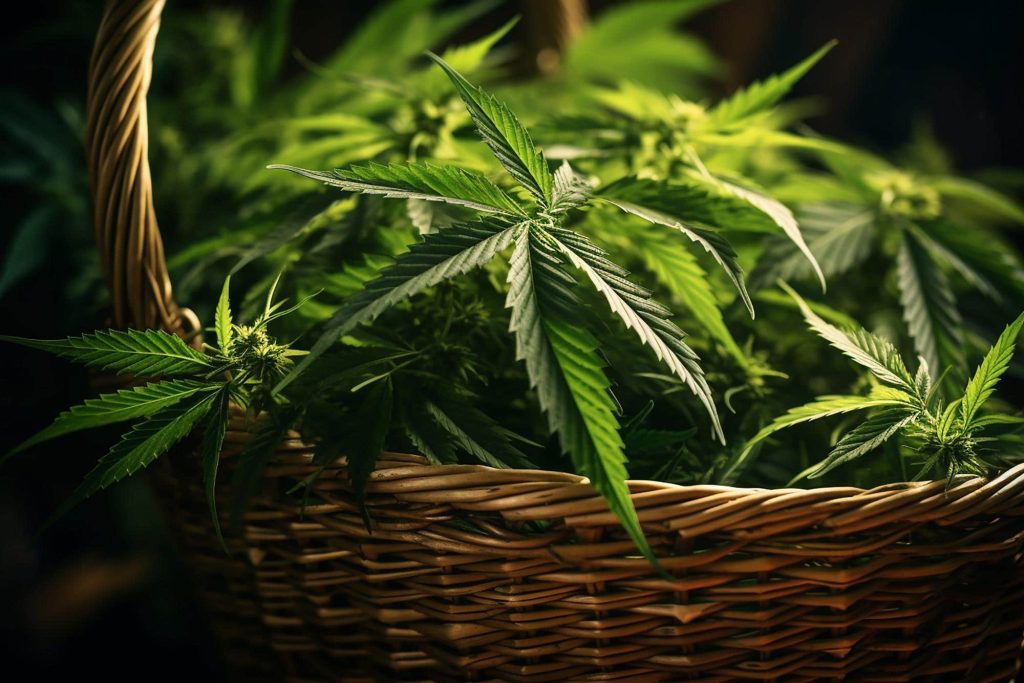THCA tetrahydrocannabinolic acid flower is gaining significant attention in the evolving landscape of cannabis culture, marking a shift towards understanding and appreciating the full spectrum of cannabis compounds. Unlike its more famous cousin, THC tetrahydrocannabinol, THCA is non-psychoactive in its raw form, meaning it does not produce the high commonly associated with cannabis. This distinction has become increasingly relevant as consumers seek to explore the therapeutic benefits of cannabis without the intoxicating effects. As awareness grows, so too does the popularity of THCA flower among both medicinal and recreational users who are curious about the nuances of cannabis and its various applications. One of the most compelling aspects of THCA flower is its potential health benefits. Research indicates that THCA may possess anti-inflammatory, neuroprotective, and anti-emetic properties, making it a candidate for addressing conditions such as chronic pain, nausea, and neurodegenerative diseases. As more studies emerge, highlighting the benefits of THCA, consumers are becoming more interested in using this compound for holistic wellness.
The shift towards health-centric cannabis use is part of a broader trend where individuals are looking for natural alternatives to pharmaceuticals. THCA flower provides an opportunity for users to incorporate cannabis into their health routines in a more nuanced manner, focusing on specific needs without the psychoactive effects of THC. The cultivation of THCA-rich cannabis strains has also transformed the cannabis industry, leading to a wider array of products and experiences for consumers. Growers are increasingly selecting for high-THCA strains, often crossbreeding to enhance desirable traits while preserving the compound’s integrity. This meticulous approach has resulted in diverse strains, each offering unique aromas, flavors, and potential therapeutic benefits. The increasing availability of THCA flower in dispensaries reflects a growing recognition of consumer preferences, paving the way for more personalized cannabis experiences. Consumers are not just looking for a high; they are seeking specific effects and benefits that align with their lifestyles, and thca flower caters to this desire. Moreover, the rising interest in THCA flower is intertwined with the broader cannabis cultural movement that emphasizes education, community, and responsible use.
 Consumers are becoming more knowledgeable about the different cannabinoids and terpenes found in cannabis, fostering discussions around the effects and benefits of each compound. This cultural shift encourages users to engage in more mindful consumption, where they consider the therapeutic potential of cannabis beyond its psychoactive properties. As social stigmas around cannabis continue to diminish, the exploration of THCA flower exemplifies a progressive attitude towards cannabis use—one that celebrates its complexity and versatility. In conclusion, THCA flower is carving out its niche within modern cannabis culture, serving as a testament to the evolving understanding of cannabis and its myriad compounds. With its potential health benefits, diverse cultivation practices, and alignment with the holistic health movement, THCA flower is not only enriching the cannabis experience but also empowering consumers to make informed choices. As research continues to unfold, the role of THCA in cannabis culture is poised to expand, inviting a new wave of curiosity and appreciation for this remarkable plant and its many constituents.
Consumers are becoming more knowledgeable about the different cannabinoids and terpenes found in cannabis, fostering discussions around the effects and benefits of each compound. This cultural shift encourages users to engage in more mindful consumption, where they consider the therapeutic potential of cannabis beyond its psychoactive properties. As social stigmas around cannabis continue to diminish, the exploration of THCA flower exemplifies a progressive attitude towards cannabis use—one that celebrates its complexity and versatility. In conclusion, THCA flower is carving out its niche within modern cannabis culture, serving as a testament to the evolving understanding of cannabis and its myriad compounds. With its potential health benefits, diverse cultivation practices, and alignment with the holistic health movement, THCA flower is not only enriching the cannabis experience but also empowering consumers to make informed choices. As research continues to unfold, the role of THCA in cannabis culture is poised to expand, inviting a new wave of curiosity and appreciation for this remarkable plant and its many constituents.